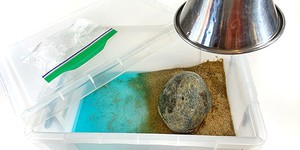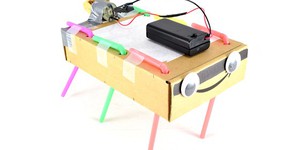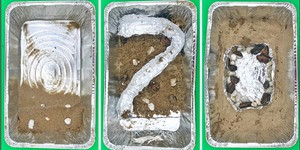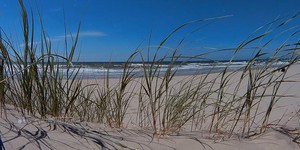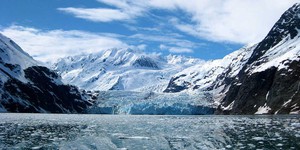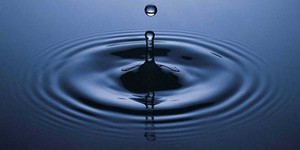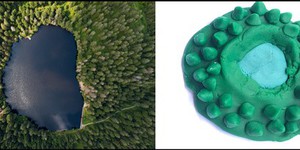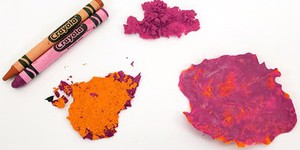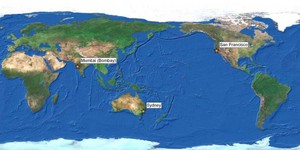Geology Lesson Plans (12 results)
Geologists study the Earth, trying to understand the forces that gradually shape and change the landscape and ocean floor, as well as forces that make themselves felt more suddenly, like earthquakes and volcanoes. The information geologist discover helps in many ways, from keeping populations safe from disasters like landslides to uncovering important ore deposits like titanium used for surgical equipment.
|
Select a resource
Sort by
|
Lesson Plan
Grade: 6th-8th
7 reviews
Earth is a planet full of water. 70% of its surface is covered with water in oceans, lakes, rivers, and more. Water on our planet can also be found in the atmosphere and underground. In this lesson, students will explore how water is continually cycled among land, the oceans, and the atmosphere. As students build a physical model of the water cycle, they will be able to simulate and observe evaporation, condensation, precipitation, and other water cycle processes in real-time.
Remote…
Read more
NGSS Performance Expectations:
Featured
Lesson Plan
Grade: 6th-8th
7 reviews
Junkbots are easy-to-build robots that you can make using a simple circuit and some recyclable materials. In this lesson, your students will learn about engineering design as they compete to build the fastest robot. No previous robotics experience is required!
Read more
NGSS Performance Expectations:
Lesson Plan
Grade: 4th-8th
3 reviews
The problems with using fossil fuels starts with extraction. In this activity, students "mine" chocolate chips out of cookies to demonstrate the effects mining can have on habitats.
Read more
NGSS Performance Expectations:
New
Lesson Plan
Grade: 6th-12th
Create a two-part system for filtering greywater. Teams will focus on communication and systems engineering as they build separate components to filter solid and liquid waste and then combine them into one device.
Learning Objectives
Students will:
Consider the potential effects of drought and how greywater could be part of the solution.
Design a system for filtering out solid waste or liquid waste.
Consider effective communication strategies with their team.
Collaborate on their design…
Read more
Lesson Plan
Grade: 2nd
7 reviews
In this lesson plan, students investigate different types of water bodies on Earth by making models of lakes, oceans, and rivers inside an aluminum pan using various materials and real water. By describing each water body and sharing their observations about their differences and similarities, students will be able to identify the typical characteristics of each water body.
Read more
NGSS Performance Expectations:
Video Lesson
Grade: 4th
2 reviews
In this lesson, students explore weathering—the wearing away of rock by exposure to the elements. They learn how it creates smooth boulders, rounded pebbles, sinkholes to swim in, and caves to explore. In the activity, they explore the connection between weathering and sand using sugar cubes.
Read more
NGSS Performance Expectations:
Lesson Plan
Grade: 5th-8th
1 review
Do sea levels rise when ice melts? Does it matter whether the ice is on land or in the ocean? Students design an experiment to find out. They collect data, graph their results, and interpret their findings. Along the way, they learn about density, displacement, and climate change.
Read more
NGSS Performance Expectations:
Lesson Plan
Grade: 3rd-5th
4 reviews
Our planet's surface may be mostly covered in water, but how much of that can we use? In this activity, students will see how water is distributed across different sources, how much can be used by humans, and will brainstorm ways to decrease their usage of fresh water.
Read more
NGSS Performance Expectations:
Lesson Plan
Grade: 2nd
3 reviews
In this lesson, students will build three-dimensional play dough models from pictures that show various landforms and bodies of water. As they analyze and compare their different models, students will realize that there are many different types of landforms and bodies of water on Earth. Based on their play dough models, students will discuss how various landforms and bodies of water can be represented on a map.
Read more
NGSS Performance Expectations:
Lesson Plan
Grade: 6th-8th
1 review
Can one type of rock turn into another type of rock? In this lesson plan, your students will explore the rock cycle and model it using crayons. Can they turn a sedimentary "rock" made from crayon shavings into a metamorphic rock? What about an igneous rock? Try this lesson to find out!
Read more
NGSS Performance Expectations:
Lesson Plan
Grade: 4th-8th
In this activity, students will compare maps showing worldwide temperature, precipitation, biodiversity, and soil nutrition levels to predict where on our planet rainforests are located.
Read more
NGSS Performance Expectations:
Lesson Plan
Grade: 3rd-7th
How can we determine the locations of tectonic plate boundaries? How can we use seismic waves to pinpoint the epicenter of an earthquake? In this activity, students will explore these and other questions using seismic data and triangulation.
Read more
|
Explore Our Science Videos
Fun Physics with Your Cell Phone
Video: Winding Coil
Why Do Apples and Bananas Turn Brown? - STEM activity


